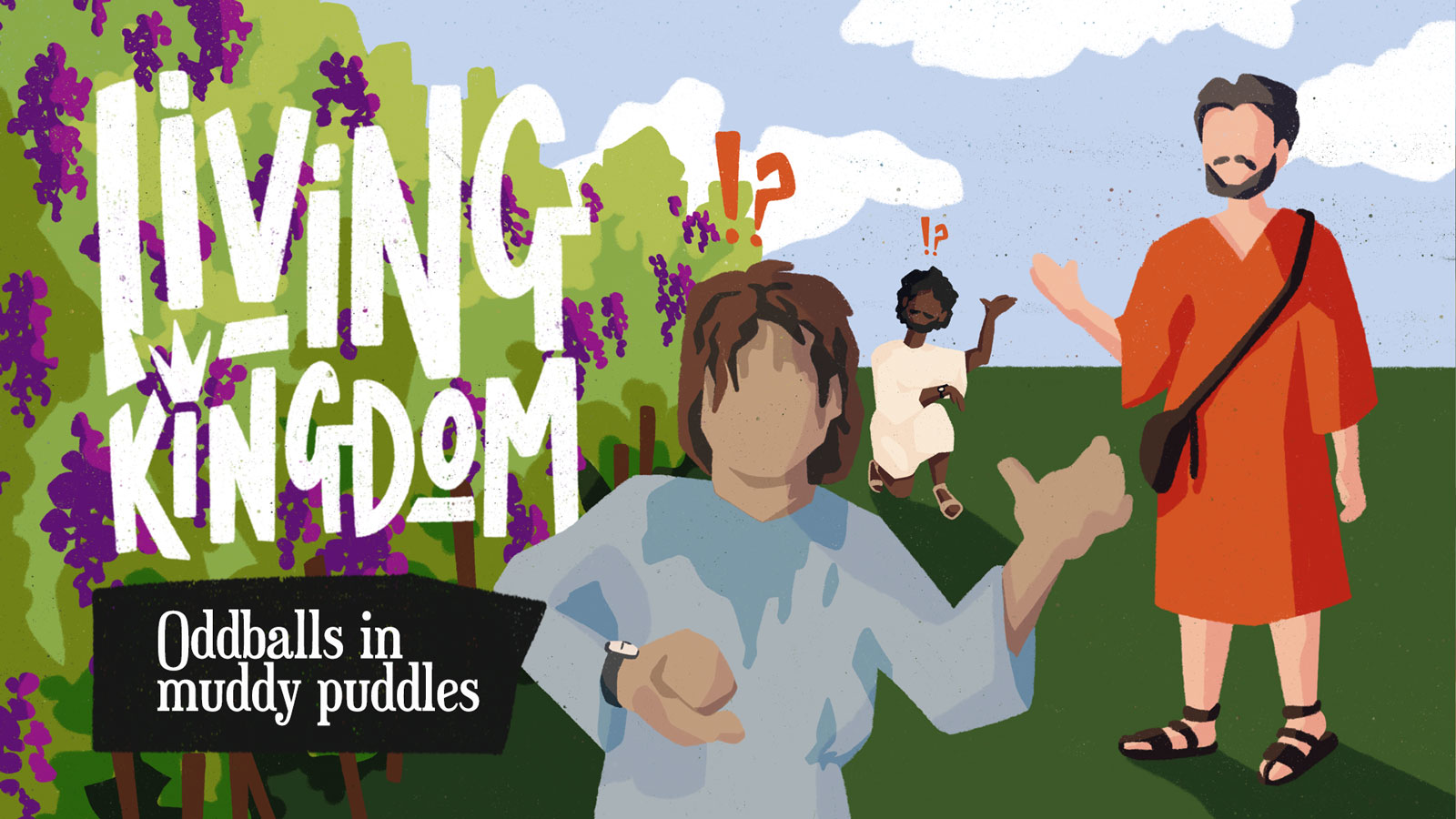Workers in the Vineyard
“For the kingdom of heaven is like a landowner who went out early in the morning to hire workers for his vineyard. He agreed to pay them a denarius for the day and sent them into his vineyard” (Matthew 20:1,2).
There’s one parable that Jesus told, that causes me more anguish than the rest. The parable found in Matthew 20:1-16 is commonly called the “The Workers in the Vineyard” and its message is jarring. Like many middle-borns in the birth order, I confess to being somewhat obsessed with fairness and this parable triggers my injustice meter. I feel my indignation is legitimate, as the wealthy landowner pays the workers who worked a full day the same amount of money as those who began work at midday and those who worked just a few hours in the late afternoon.
I have tried to justify this outrageous narrative of Jesus in several ways: “Maybe it was the harvest season and storms were predicted that could ruin the crops so maybe there was a race against time and the landowner was simply incredibly grateful for their labour.” Or maybe “The wealthy landowner had a socially radical agenda” that is being highlighted. Yet in my most honest place I know those potential addendum lessons are but a distraction—the smoke and mirrors I use to avoid the most uncomfortable truth that lies at the heart of this story.
My injustice meter shrilling like a fire drill siren “unfair, unfair, unfair” when those who hardly raised a sweat by working a few hours receive the same pay as the day long workers, seems pretty human. When I excavate a little deeper as to why this parable is so triggering, I discover I have placed myself into this story as the early worker. I empathise with those labouring hard from dawn through the entire day in the scorching heat, until totally exhausted at sunset. I see myself as the one who works hardest and longest and feel embarrassment at transposing myself as an “Aussie battler” who is just “doing my bit” and “trying to get ahead”.
This summation forces me deeper into the real problem within this story. The most uncomfortable truth of all that causes me the greatest anguish is that while my indignation rises and my injustice meter shrills, I am recoiling from the grace of the landowner. I see the wealth of the landowner as a finite pie and I somehow feel that the slices are mine to dictate. I am not just dismissive of the generosity of the landowner, I feel riled up. Why do I have such a hot response to the landowner being exquisitely generous toward the workers who started later in the day? How can I, the “mature Christian”, be wanting justice and protesting grace when I myself have received a generous share? How have I backslid into this role of wanting others to earn their way rather than rejoicing at the grace-filled distribution? Others receiving grace doesn’t have anything to do with me. It doesn’t alter my position, my pay, my opportunities or my situation. Grace given to others does not change anything about the grace freely available to me.
I really cringe at this awareness of myself.
Unfortunately I also wrestle with societal whisperings that advocate fairness, disguised as economic structures that prioritise profit over social good and encourage and reward individuals trying to get ahead. This brainwashing from society neglects social cohesion, increases poverty and sacrifices our collective wellbeing for the benefit of the few. These pressures disparage grace. Grace is portrayed as foolish, ridiculous and weak; as something that takes advantage of people. Grace doesn’t allow us to get what we deserve, which is the whole point actually. Grace reveals God as holy and me as wretched and struggling . . . but again, that’s entirely the whole point of grace!
Another part of my anguish is not wanting to see that maybe I am the worker who was last hired and was the least employable; held back by inexperience, gender, disability, ethnicity, theology or my character deficits . . . I don’t want to see myself in need of grace . . . cause I’m doing just fine. Really.
So here I sit in a pity party for one. My knees pulled tightly into my chest, as I huddle in puddles of shame and stare at my reflection, trying to see myself as God sees me, to love myself truely and deeply. Yet even sitting in this puddle, I fall under His umbrella of grace. From this puddly vantage point, the entire purpose of the parable is revealed to me. The kingdom of heaven is like . . . sitting in puddles and looking down into the murky waters’ reflection and only seeing the Son shining. Therefore, maybe this story is about a bunch of oddballs that Grace gathers together—not because they are rich, worthy, theologically correct or have worked the hardest—maybe they simply have their muddy hearts and hands outstretched to accept grace.
This parable paints a vivid and startling portrait of the upside-down kingdom, a kingdom where God is foolishly lavish toward us, the undeserving ones, even while we grumble about His distribution. God’s grace is projected as so magnanimous that it provokes big emotions, anger even.
While anger is completely valid as its own emotion, anger is also a protective emotion sometimes used when a deeply raw emotion such as sadness, disappointment or shame is present and needs to be addressed or validated. It is easy to reject grace. It is easier ignoring our inadequacies and admitting we fall far short of living a life that is admirable. We’d rather imagine ourselves as the hard worker than having to deal with emotions that arise from knowing we are actually the inadequate ones, the ones not chosen—passed over for that job, award, relationship, parenthood . . .
The good news is there is always room for more odd balls. Notice the wealthy landowner doesn’t just employ once or twice, he goes out again and again seeking those in need and bringing them into the vineyard. God doesn’t want anyone to miss out. No-one. And that includes me while I sit in my puddle. And you. Yes God knows your story. God knows the darkness you hold onto and the doubts and fears that whisper in your ears and settle into your core and push grace away.
It is an intentional plot twist that the landowner has his manager gather all the workers and pay those who worked the least hours first and in front of all the others who worked longer hours. The parable intentionally casts the full day workers as dissatisfied with the landowner’s “unequal” payments. This narrative shows that grace excavates our deepest insecurities, our unworthiness, shame and self disgust and seeks to disarm our superiority complex. God’s grace isn’t secret or given with explanations; it is distributed openly and extravagantly on purpose and in the mysterious way God works. Grace is not given according to our ability to exegete or serve the poor or according to our character or what denomination we declare on the census. If grace isn’t uncomfortable, we haven’t grasped it.
This story should force us to consider a different perspective around how we see ourselves. Do we act superior around those who are more recently “saved”? Do we place high bars around behaviours that they have become obstacles on the pathway to the cross? Do we wield the Bible like a weapon rather than showcasing it as containing the remedy for suffering and a GPS to Jesus? Are we constructing ourselves as fix-it-physicians basking in how far we’ve refined our character, sticking gold stars on ourselves while secretly feeling glad we are not like “them”—AKA dole bludgers or that neighbour that screams and swears loudly at her kids or that conspiracy theorist posting all over Facebook. Thank you God we are not like those over there . . . those with dust in their eye while we blindside others with the plank in ours?
And last but not least are we guilty of elevating ourselves as the remnant, so that we deride, criticise and stay away from those who do not interpret theology like we do?
I vote we rename this story The Parable of the Ridiculously Generous Landowner and the Oddballs Who Sit in Muddy Puddles. God is trying to tell us “Stop trying so hard! Cease all that hard and holy work that distracts you and has you construct yourself as a superior people. Stop the comparisons and abandon the relentless pursuit of good. Instead pursue surrender. I invite you to simply be with Me.”
Ultimately, the problem with grace isn’t God and His recklessness—it’s me in my humanness struggling to accept grace’s sacred gloriousness. But I must try to remember that the kingdom of heaven isn’t the try-harder kingdom, it’s the try-Jesus kingdom. The kingdom of heaven is like a ridiculously generous God who leaps muddy puddles in a single bound to make the uncomfortable comfortable and the comfortable uncomfortable via His omniscient and unfathomable grace.
Rochelle Melville is an art therapist studying social work. She is passionate about helping people release their innate creativity for healing, wellbeing and worship.







